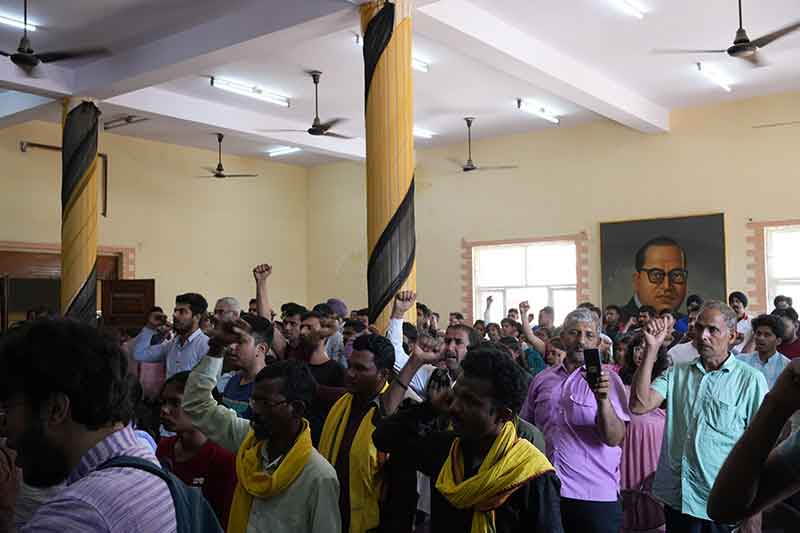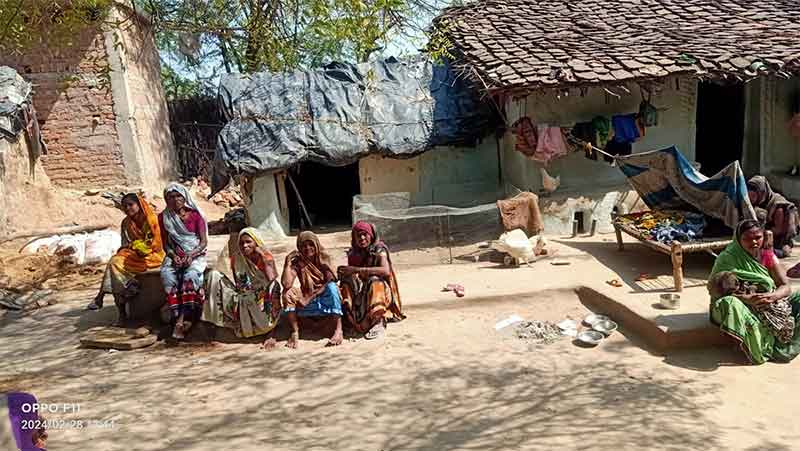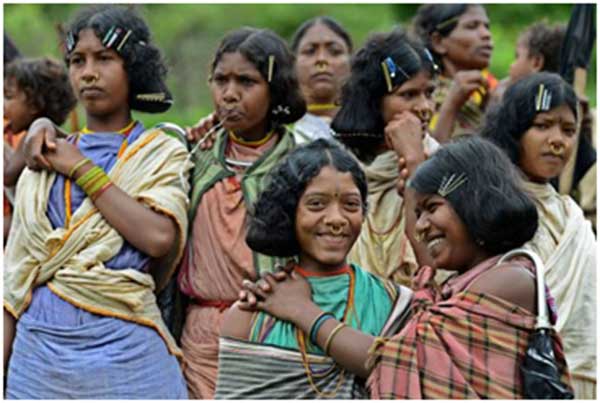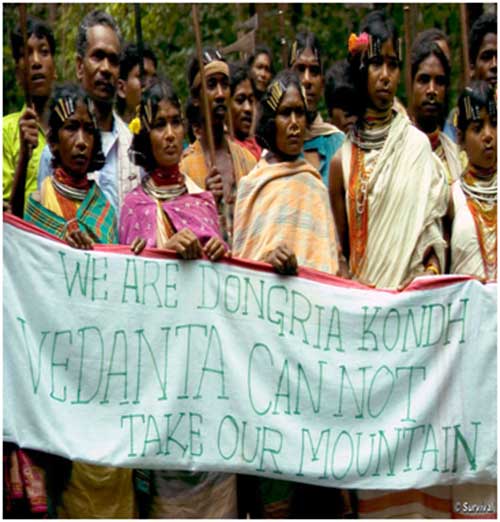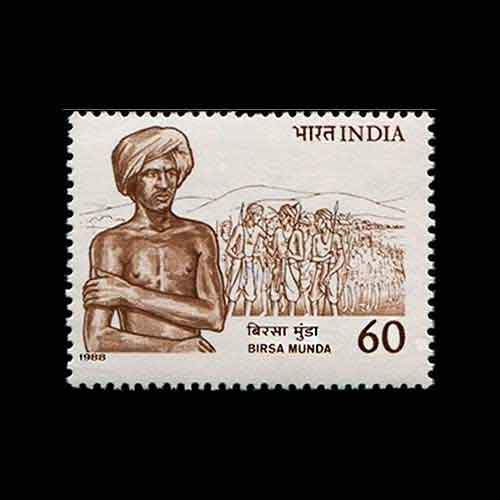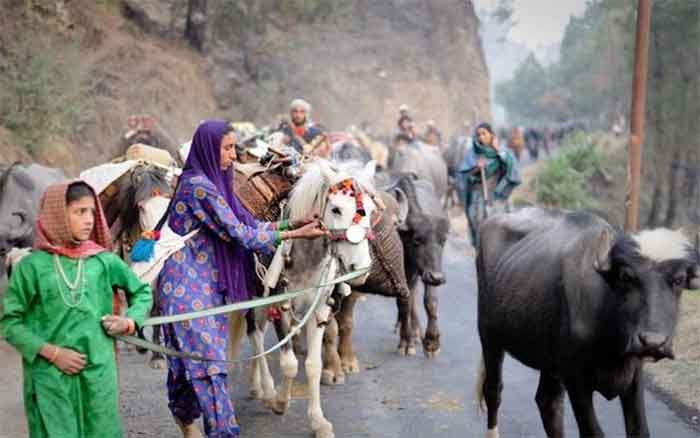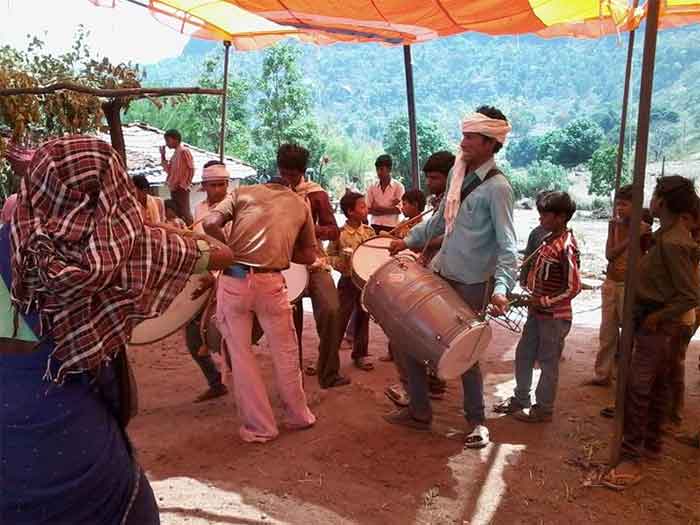
There is so much cacophony on ‘development’, that shrieking voices dissolve the milder ones, as bulldozers transform landscapes, and brush away healing sources of life along with the people who are nourished by them.
I live in Madhya Pradesh (MP), the Indian state with the largest numbers of tribal people, as well as the highest malnutrition of children. The Narmada River, flowing across the state, has witnessed large dispossessions of tribal peoples through development and conservation projects.
The tribal communities of Central Provinces were forced to migrate from the fertile riverine plains to the rugged forested terrains initially during the advent of the Marathas, later deprived through colonial interventions, and further marginalised in contemporary times through capitalist development.
The Saharia community in MP represents the most deprived ‘particularly vulnerable tribal group’ (PVTG). Their illiteracy and malnutrition have arisen from landlessness, dispossession and rehabilitation of the community by development projects. Forced in to wage labour in brick kilns, agricultural fields and road construction, they are located today in the most deprived rungs of the stratified non-tribal society.
In contradistinction to the Saharia, the Bharia community, also a PVTG, live in forest lands in Patalkot, with good nutritional levels and above the average literacy rate[i] of tribal communities in MP. Patalkot, in Chindwara district, is a deep valley of River Doodhi surrounded by steep rocks. It is part of the Narmada River catchment in the Satpura mountains.
Most of the villages of Patalkot, totalling 12, can be reached only by foot while some can be reached by roads. The Bharia people climb up to reach market places, and students walk several kilometres to reach schools. There are 4824 Bharia people living in Patalkot.
Last year we had the opportunity to research with the Bharia people, and by the end of the study we called it ‘a turning of the tables’ in which the people’s conversations, reflections, oral history, theory and agency evolved a rich knowledge base of lived experiences.
We had made a documentary movie too, and as the Bharia people watched it, they remarked on the unusual structuring of the research forum which listened and made them heard. Seated on chairs in a circular formation, they contradicted it with meetings with government officials where the latter occupies podiums and people squat on floors.
The sound of silence, as this essay is titled, is a story that weaves together the conversations of the Bharia people from across the valley:
We live in the deep valley of River Doodhi. We revere the forest where our knowledge and spirituality lie. We take from the forests and we protect them.
Our healing is based on knowledge of medicinal plants and herbs. Our large variety of food is gathered from the forests. We also cultivate maize, kodo-kutki and lentils, and keep poultry.
We sell forest produce. But they cheat us through their weights and prices. Moneylenders roam our lands- eyeing vulnerabilities, extracting interests in kind, that always make our produce flow more and more in to their hands, and yet make us indebted.
The forest department of the government manages the forests. They select and fell trees, saying that this makes the other trees grow well. We do not agree. Trees grow together. What they cut down as useless trees are those that give us food. The fruits, flowers and leaves are also eaten by birds and animals. We say this to the forest officials. But they don’t understand.
We hope in the mud that clings on to the rocks. There we plant, so that trees would grow to bring water and food to the land. We sing and dance together. They call us to the cities to dance. We get paid. They call us to the fields and road sites to labour. We get some money.
We sing and talk in the Bharia language. We have so many words for the flowers, fruits, birds, bees, roots and streams that fill our lives. But we have no script to write. Many languages do not have scripts.
Our God, Bada dev, lives in everything around, and in us. We revere the Saaj tree. We build no temples, churches or mosques. We have no priests, no middlemen. We eat, dance, heal and care for each other. So, we do not build huge structures, and we have no one dying of want. But they call us backward.
We have learnt to read and write in schools. The books do not tell what we have just told you. They only talk of the city, and of times and space that label us as backward. Our people who learn more from the schools come back and wonder:
“Perhaps the Bharia people are less in intellect?”.
But if the books held our world, we would answer all the questions, and our intellect would talk.
We are in the deep roots of the Saaj tree. As we hold hands and dance in a circle, those who have gone uphill sit alone, look at their own hands, and say:
“All fingers of the hands are not equal. There are bigger people and smaller ones.”
But we continue to hold hands, we have no hierarchy of caste, no temples, mosques or churches. We, women and men, dance, drink, eat and share. In our Bharia meetings, we build consensus and collectivity. We stand in and with our forests.
We shrivel without the Saaj tree, our streams, fruits, medicines and our togetherness. But they do not agree. They say resources are to be extracted, and in their gaze, we are untapped cheap labour.
Yemuna Sunny is a researcher, writer and teacher. Her areas of work lie in the intersections of society, nature and education.Contact: [email protected]
[i] Census of India 2011 records the average literacy rate of tribal population in MP as 50.6% and that of Bharia people of Patalkot as 58.14%

